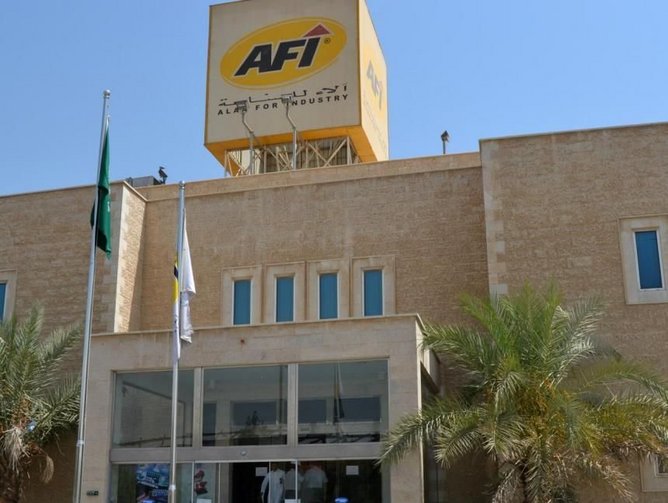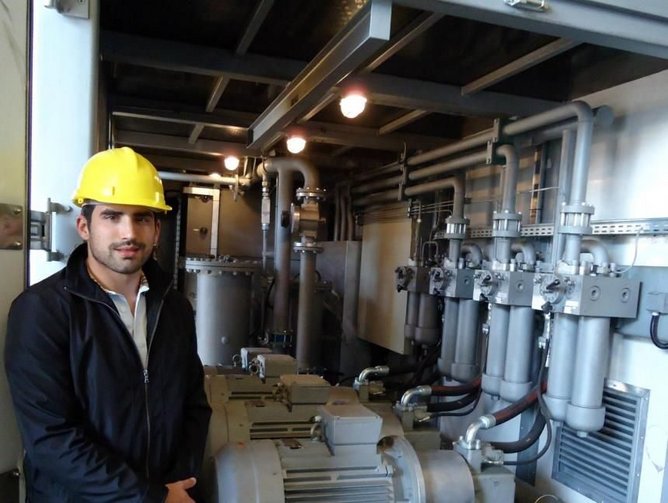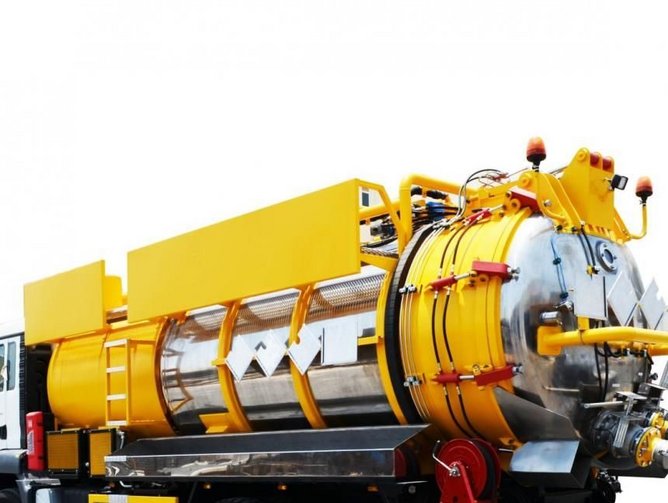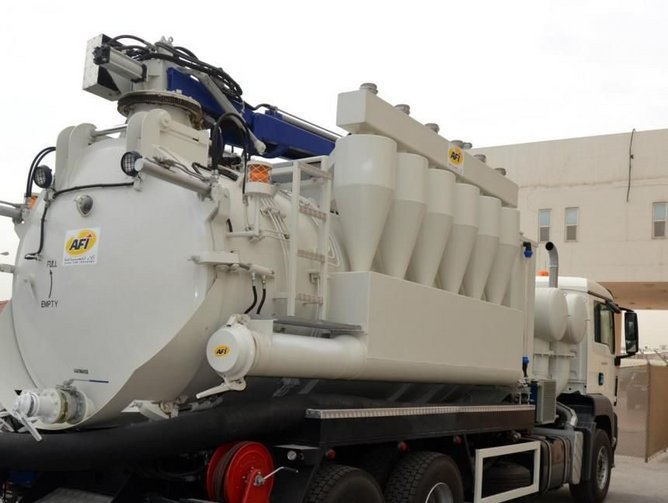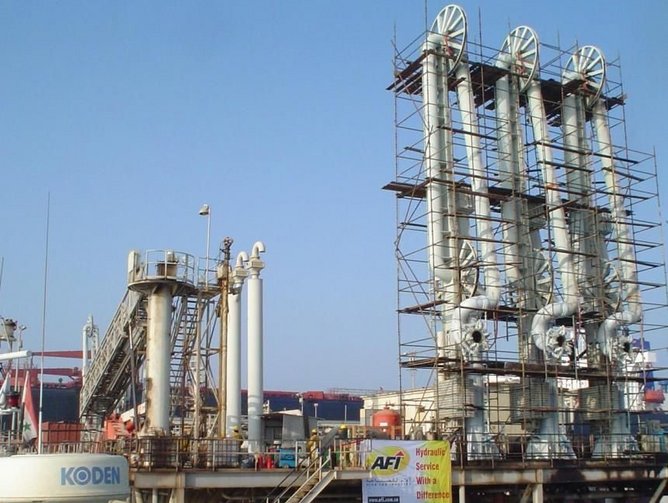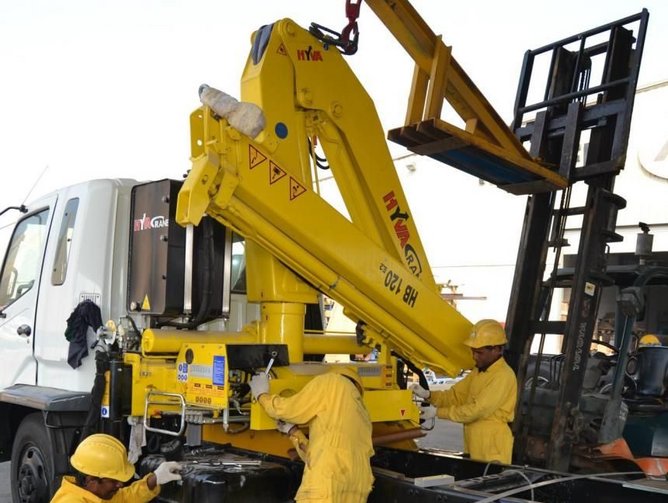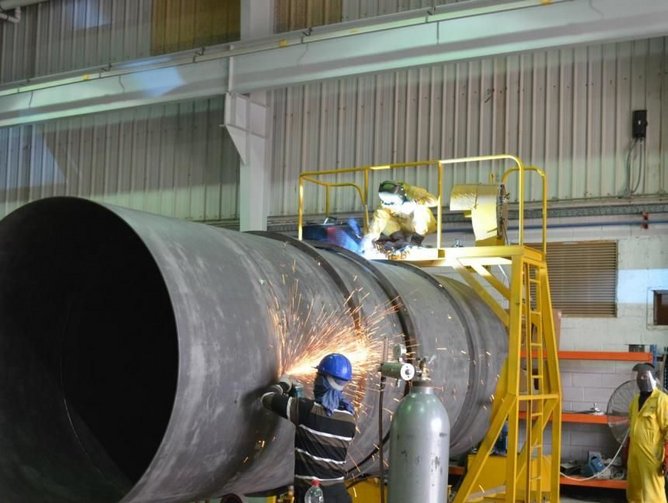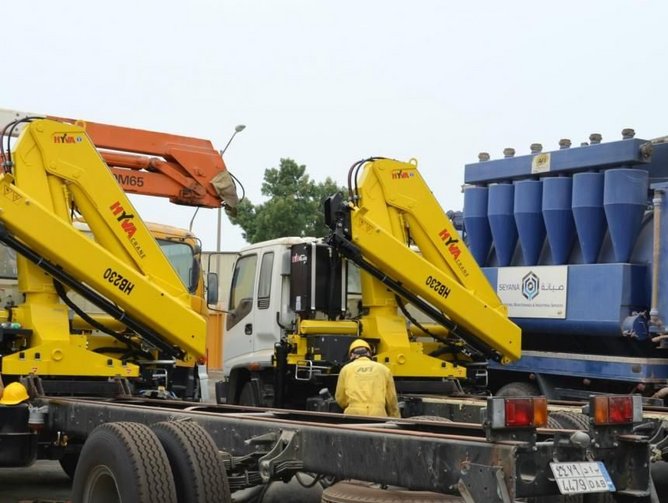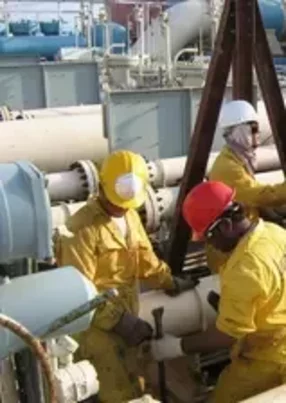Alaa for Industry (AFI) has come a long way in the 31 years since it was founded by owner and chairman Ibrahim Ali Al-Rashoodi. From humble beginnings as a small seal and hydraulic manufacturer and distributor in Dammam, the firm has grown into a multinational company.. Now one of the leading industrial suppliers and service providers in the Arabian Gulf, it operates out of 18 branches, 14 in Saudi Arabia and four overseas.
Over the years its manufacturing capacity has widened to include everything from seals to supersuckers – it was the first company to manufacture these industrial vacuum loaders in the Middle East back in 2005. More recently, it became the first company to build an ADR unit in Saudi Arabia and over the 31 years of AFI it has had many firsts supported and developed by its own technical department.
Its main customer base is linked to the oil and gas industry, and while it has made some acquisitions in the past, the company’s growth has largely come from developing relationships with its large customer base in all industry verticals. It has, in the past, had joint ventures with key companies to support the market demand and will continue to look at this as a way of future growth., , according to its CEO Stuart Hind.
AFI has set up supply and distribution agreements with a wide range of companies, including overseas firms such as UK industrial companies Dixon and more recently, Eriks to name a few. The company has a huge product line – it supplies about 90,000 line items from almost 280 international suppliers.
Having such a diverse range of products inevitably throws up practical challenges – for example, the company plans to upgrade its IT system from its current BAAN system to a newer, more web-based version next year, but Hind says there will be a long transitional phase due to the large number of part numbers used by the company but it will improve productivity and functionality.
But there’s an even bigger challenge that comes from having such a large range of offerings, and it’s one that Hind is keen to tackle. He says the company has now grown to the point where its operations need to be divided into more manageable verticals to ensure its continued success.
Restructuring key to the future
The AFI CEO may only have been in the job since January, but he has wasted no time in setting about restructuring the company. In February he outlined a proposal to divide the company into five divisions over the next three to five years; in March his plan was signed off by the board of directors; and the company has now started the process of segregating the first division, capital equipment, which is expected to be completed by the second quarter of 2016. The rest of the company will be divided up into four other divisions: oil & gas and petroleum supplies and services, transportation, power transmission and hydraulics & pneumatics. Which will bring a greater focus to its customers, suppliers and employees. Once the restructure is complete, the company will also have a separate manufacturing division to deliver quality Made in the Kingdom of Saudi Arabia transportations products in line with market and industry demand.
“It is a very diverse business and the five divisions will allow us bring greater focus to the customers and our suppliers, allowing our partnerships to continue to grow and enabling us to diversify our business in line with the changing market conditions,” says Hind.
Hind was able to set to work on the restructuring without too much of a settling-in period as he was already very familiar with the company. He first worked for AFI in 2006 as its country manager for Kuwait, before being promoted to area general manager for Kuwait, Bahrain, Qatar and Iraq the following year. He left the company in 2010 and worked for DHL and Panalpina in the Middle East before returning to lead AFI at the start of this year.
Much of Hind’s career has been spent restructuring and developing businesses, although he admits none of his past projects have been on as large a scale as the division of AFI. He is excited by the challenge and has identified key areas where the business needs to change.
One of the aims is to sharpen the focus of its sales team, which has historically been selling across a very diverse product range. “Trying to get our sales engineers to work across all our products ranges is not easy. We have good sales one year on one product and then it drops off because they focus on something else that the customer or market wants.”It has a very strong and capable sales team, giving them a clear strategy and vision for them to focus and develop both themselves and the customers.
Because Saudi Arabia was, until the early part of this century, effectively closed to foreign business and many industries run by monopolies, the company didn’t have a strong historical focus on driving sales as customers would have to come to the company with the product they needed. This has changed with the opening of the market and competition within the region and the sales teams needs to be active in the field and maintaining relationships with the large loyal customer base. Dividing the company into more manageable divisions will bring focus to the sales engineers and improve customer service and supplier development.
Hind has been in the Middle East since 2001, after stints in the army, running his own security business and with Bass Brewery in the UK, and he says times have changed.
“Over the last 10 years Saudi has changed. As an international company you can come in and set up your own business without a Saudi sponsor. There are lots of things you can do to try and choose the way business is done. I want to make sure AFI is ahead of the game and changing with the evolution of Saudi Arabia.”
Homegrown
One theme emerging as Saudi evolves is the desire for more manufacturing in the country, says Hind. AFI is currently in discussions about setting up a joint venture with a South African aluminum manufacturer to start building aluminum tankers in Saudi, something he hopes to have in place by next year. “Aluminum welding is quite a technical process so having this company from South Africa which has been doing it for 15 years as a joint venture partner will be hugely beneficial as a way of expanding our manufacturing business.” The company has always looked at opportunities to manufacture products locally to improve the quality and service provided to customers. The present manufacturing facility offers a large range of products from vacuum tanker, supersuckers to service trucks and special bespoke designs meeting customers’ specific needs. This is supported by a technical design team of engineering experts with state-of-the-art AutoCAD 3D software and years of experience, and a QAQC department that ensures products are manufactured to the highest level.
And although companies are not restricted in the items they can import, there is a growing push to produce more locally. The Saudi government offers subsidies such as favourable land prices often offered to those firms looking to do so as well as other initiatives to the support and development of local manufactured products.
AFI also sees an opportunity to provide manufactured equipment for the burgeoning agricultural industry to improve the service offer to an ever growing industry within the region.
“Within the central belt of Saudi Arabia agriculture is growing and developing, they have huge chicken farms, milk, vegetables and fruits and other essential agricultural products to service the local demand which will reduce the need to import vital food groups. and we don’t really have an agricultural range. So my AGMs and Marketing Manager are presently looking at agricultural equipment/products that we can add to our product range either manufactured or trading items,” he says.
AFI is also keen to develop local talent in its workforce. It began a mentorship programme for Saudi Arabian nationals two months ago, with about ten qualified Saudi Engineers hoping to increase to 25 going through the scheme every two years, all receiving sales training, technical training and managerial training to enable them to become future leaders of the business..
Overall, Hind says about 30 to 35 percent of AFI’s workforce is made up of Saudi nationals and the company has a strong desire to promote staff development for both local and expat staff. In fact, this was one of the factors behind the division of the company into five separate areas.
“One of the things about the division is to enable continuous development of our employees. We’re trying to make sure our divisions, and the staff within those divisions, are trained to the highest level. With the growth of the company, the training that has been happening over the last few years has been a bit all over the place, not wasted but also not focused. So we want to train people for each division so that they receive continuous updates in technology and products specifically linked to the division and the range of products and services within that division,” he says.
At present, AFI has about 850 employees and a contracting and rental division that varies depending on the workload but which currently has about 500 employees. Its recruitment process is dictated largely by visa allocations, with more flexibility when hiring contractors for specific contracts. Visas in Saudi are linked to nationality which makes it a challenge when looking to hire a specific person; AFI applies for visas and the government awards by nationality and specific job title. AFI has to locate suitable applicants by using agents in specific countries to find the right person. This is all linked to the development of Saudi nationals and is linked to our mentoring program to improve the local workforce in all areas of our work.
With so much time and energy spent looking for the right person and to secure staff, employee retention is very important to AFI, says Hind. “We have a very good retention rate. We have good staff accommodation and good HR policies. If you don’t keep focusing on that then people can resign and that will have an impact on your business so our key focus is on our staff and their development within the company.”
Beyond oil
Another factor that is undoubtedly impacting AFI’s business is the current slump in oil prices. As a business intrinsically linked with the oil industry, the situation is causing a shift in thinking in the business, says Hind.
“Saudi Arabia is not immune to the fall in oil and gas prices. Depending on what you read, the oil price is not going to get back to $75 until 2020. We can’t sit back and wait for this to happen because we have employees and customers that rely on us to make changes to enable growth rather than going through redundancy processes or sitting back doing nothing until the market improves. So we need to diversify our business. We’ve just brought on a service manager that is looking at our entire product range and development contracts looking for opportunities to do this.
“One way we are dealing with it is focusing on our MRO [maintenance, repair and overhaul] and after sales service business because we’ve found people would rather extend the life of their existing capital equipment than replace it while the oil price is low.”
The second way is by diversifying into Saudi Arabia’s growing rail and mining industries, and in the latter it should have an edge as it already provides services and equipment to the largest mining company Maaden.
Hind says while Saudi Arabia’s mining and rail industries may be fledgling in comparison to other regions, they provide exciting opportunities for expansion. While visiting the UK for the Rugby World Cup recently, Hind met with Preston-based partner Dixon to discuss further opportunities to work together. “We have partnered with Dixon for many years on the hose and coupling side of the business. But they have a mining division and a rail division and that is something we are looking to drive forward so I’ve been discussing with Dixon their product range and solutions and we will look to start expanding that partnership in 2016. We will not stop there, AFI will go the extra mile to bring the products and services the industry needs to grow and we will also look at locally manufactured products to support these growing industries in the Kingdom and wider region.
“There is a lot of money set aside for rail projects in Saudi Arabia. We have
hydraulic lifting equipment and other common products but we don’t have products specifically for rail. So diversifying our product range and bringing on suppliers for rail will enable us to break into a new vertical that we weren’t in before.”
Well poised for transformation
The company’s large technical knowledge base is easily transferable into new areas, says Hind, and with about 50 percent of its staff being qualified engineers, it has the capacity to move new innovations forward quickly. “One of the many good things about AFI is that because we have such a massive product range and all our sales engineers are either mechanical electrical, chemical, project, or hydraulic engineers, we have the flexibility to move and change as the market changes, we do our own R&D and have our own technical department that designs and moves things forward in line with market changes.”
The company is also positioned well in terms of financing this future diversification “Our owner Mr. Ibrahim Ali AlRashoodi is very well versed when it comes to what and when he needs to invest in our business,” he says. “I have a very competent team to work with and with all we are doing the future of AFI will continue to grow and support our ever growing customers' needs.”
